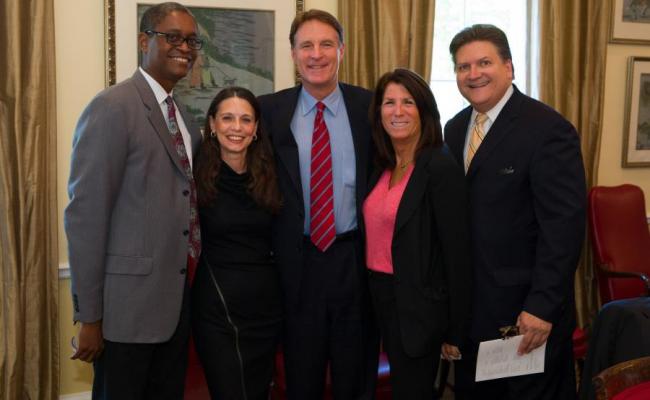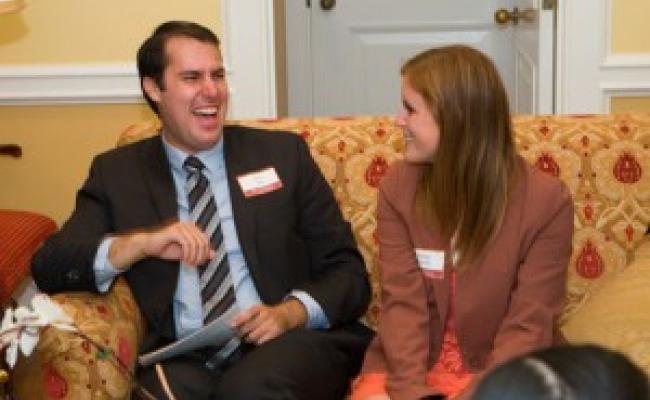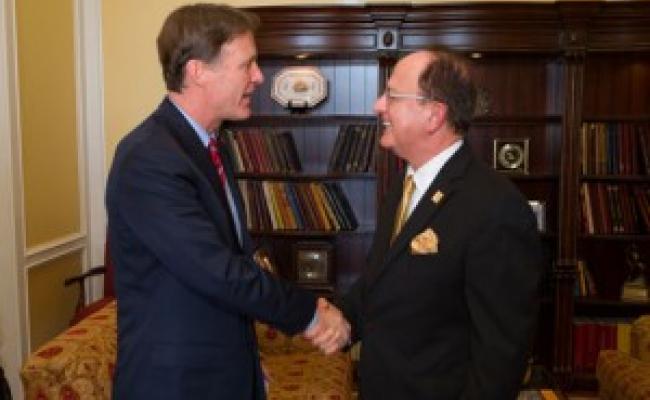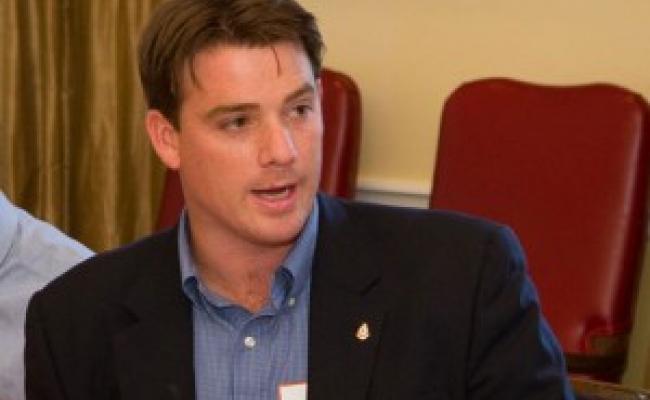On October 19, 2012, Former Indiana Senator Evan Bayh joined the Schwarzenegger Institute for a luncheon at the Widney Alumni House. Senator Bayh discussed a variety of issues, but focused his message on working across the aisle and removing partisan gridlock to help pass meaningful and effective legislation.
Let’s Do Lunch
By Aaron Taxy, President of the USC College Democrats
My mother always told me that a family that eats together stays together. Perhaps that is something that our nation’s leaders should keep in mind.
Seven years ago, I attended the American Israel Public Affairs Committee’s (AIPAC) annual Policy Conference. Outside of the State of the Union Address, AIPAC Policy Conference is consistently the largest bipartisan gathering of Congress—and their single largest annual gathering get together for a collective meal. It is worth noting that AIPAC is America’s most effective bipartisan advocacy organization.
Delivering the keynote address at this distinguished affair was a young Democratic Senator from Indiana named Evan Bayh.
Bayh discussed his work across the political spectrum with senators like Joe Lieberman, Susan Collins, and John McCain to further American interests abroad. In a speech that largely inspired my entry into politics, he emphasized that we should acknowledge our political affiliations but simultaneously work as Americans toward a broader solution to our country’s problems.
Fast forward to this past Friday. I am sitting three seats away from Senator Bayh who discussed how to break the partisan gridlock of Washington at an intimate lunch hosted by USC’s Schwarzenegger Institute. I am now the President of USC College Democrats, so you can imagine the honor it was to be included in this discussion.
The senator addressed a variety of challenges that America faces that will likely require compromise ranging from the looming “fiscal cliff” to tackling a globalized economy. But what struck me most was Bayh’s conclusion about the root of our country’s political polarization: Democrats and Republicans simply do not talk with one another very much.
After the Capitol closed its cafeteria that exclusively served senators, lawmakers lost one of their basic opportunities to gather together on a consistent informal basis. In fact, throughout Bayh’s twelve years in the Senate, he could only remember three occasions that large groups of Democrats and Republicans came together for meals (outside of AIPAC): the Clinton impeachment because they needed to set rules for a trial, and in the aftermath of the crises of 9/11 and the 2008 financial collapse. Further distressing is that with Bayh’s retirement, America has lost one of its last legislators who routinely reached out to the other side.
Should it really take a national crisis to get our nation’s leaders to break bread? Members of USC College Democrats and Republicans eat lunch together all the time. Heck, I have even been the shooting range with the President of USC College Republicans, Maddy Lansky. Here at USC, we already realize that disagreement is an opportunity to grow. But the root of coming together is a positive relationship.
So before our nation’s leaders tackle the fiscal cliff or a globalized economy, getting some lunch might be a good place to start.




